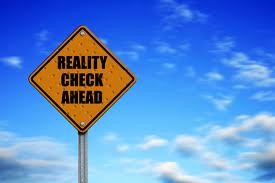I was under the impression writing my first novel was going to be the hardest part of writing a novel. Then, once it was written, the rest would be easy, right? Wrong. Reality Check! I have come to find writing my book was the easy part. Getting it published is going to be the hard part.
I was blessed with positive feedback the first time I showed my novel to publishing houses at a writing conference last year so my experience has been very positive but with so many people writing ebooks and many consumers buying them, it has changed the way the publishing industry has functioned for so long. All that to say, the publishing house who was interested in my middle grade book, Liberty Layne and the One-Girl Rebelution is undergoing so many changes they did not want to keep me continuing to wait while they decided what they were going to do. I was encouraged to seek other publishing houses in the mean time. Was I a little bummed? Yes but because I had not looked at any other publishing houses, I was actually excited to shop around and check out other publishing houses. But what I have come to discover is, most of the publishing houses I am interested in are not accepting unsolicited manuscripts. In author talk, this means if you don’t have an agent to solicit to the publishing houses, you can’t submit your manuscript. Reality Check, I need an agent.
So now, I start the search for an agent. How do I know if they are a good agent? And how do I even submit to an agent? Good question. I will let you know when I know!
What I do know is… this could get ugly, so I am strapping on my seatbelt and preparing for a bumpy ride.
Any advice on agent hunting? Have you gone through this process? I would love to hear your experience!

Hi, I used the Childrens Writers and Illustrators Marketplace. It’s an expensive book so I used it at the library. It’s a reference book so you can’t check it out. I brought pen and paper and made of list of all the agents who repped MG fiction. Any agent can sell Christian MG fiction. The book lets you know their guidelines.
Typical guidelines are to send a one page query letter (via email) along with the first ten pages of the manuscript pasted into the email. Agents won’t open attachments unless they have requested your full manuscript–then you can attach the file.
I query my midlist agents first. If I get zero response, then I tweak my query. Once I get my feet wet, then I move up the list to my most desirable agents. Most have websites so you can research them. You want agents who belong to organizations like AAR.
Don’t worry about getting a bad agent. Query reputable ones and you’ll be fine. When you get an offer, then you can really research them more closely before you decide. If you’re lucky, you’ll get more than one offer and you can choose!
Agents want to say yes, make it easy for them by following guidelines and writing a good query letter. I’d be happy to look at yours when it’s ready. I’ll email you a copy of some of mine to look at too.
Good luck!! Jen
Thank you Jen!!! And, yes, I would love for you to read my query letter. I am waiting to revise it after the content is edited. I sent an email to Brooke letting her know what I am wanting. I am waiting to hear from her. 🙂
Also, check out some of these sites! And there are so many more online about writing a query (and how not to write a query!)
http://queryshark.blogspot.com/
http://www.delbourgo.com/2011/07/query-killers/
http://www.rachellegardner.com/2012/07/query-mistakes/